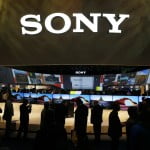
Yesterday’s news that Microsoft will acquire Nokia for $7.2 billion is probably good news for both Microsoft and Nokia, and also for small businesses.
Naysayers – and there are a lot of them – use words like it’s “too little too late” and that Nokia “can’t save” Microsoft. For instance, industry observer Vivek Wadhwa sees lots of problems on the horizon for Microsoft. He says the answer is for Microsoft to break itself up into nimbler pieces.
Others, such as Business Insider’s Henry Blodget, see it as a “smart move” but one not likely to be successful because it’s too much of a Hail Mary pass, in his opinion. If it works, it can win the game. But chances are high it won’t work, for a variety of reasons. For example, he notes that the big party in the mobile space has been tablets, but that Nokia has a nonexistent tablet offering. Microsoft, on the other hand, has tablet offerings, but they have been high priced and slow to catch on.
The Microsoft viewpoint was aptly put in an announcement sent to members of Microsoft’s Voices for Innovation community, by Jonathan Friebert, Microsoft’s public policy manager, who explained:
“This deal adds to the momentum of Windows Phone and will accelerate growth as the next billion people come online using mobile devices. In addition, the transaction provides Microsoft with leading geospatial and mapping technologies. The integration of hardware and software will strengthen the position of the Microsoft ecosystem and provide a wide range of choice to consumers worldwide.”
Why A Microsoft – Nokia Combo is Good For Businesses
For businesses that are Windows shops, having a range of Windows smartphones and tablets is an attractive thing. It provides a real alternative for businesses.
Apple and Google’s Android dominate the consumer mobile devices market today. It would be a hard row to hoe, to try to gain substantial market share there. But for business users … by combining forces Nokia and Microsoft have the potential for a stronger offering for the business market.
Businesses need that. For business users, there’s real benefit to being able to use a phone and tablet that integrate seamlessly with your desktop or laptop computers. It’s efficient. It puts less burden on businesses that use Windows. There’s less of a learning curve.
When a device makes it easier to conduct business, then small businesses and enterprises have a real reason to choose a Windows smartphone or a Windows tablet.
That’s especially true with tablets. Until recently there was somewhat of a void in the marketplace. Yes, iPads and Android tablets are fun. But for business users they have limited business value. If my own Google Nexus tablet is any example, it tends to get used mainly for entertainment and occasionally on business trips when I have to write something longer than an email with two or three sentences. It’s not very functional when it comes to the heavy lifting of business work I do. My little 4-year old netbook computer is unpleasant to use for entertainment purposes, but far more useful than my tablet when it comes to real work, despite being old and slow. Consequently, I often carry both on business trips — one for watching movies and catching up on email and social media, and the other for real work.
Some think that Microsoft’s acquisition of Nokia is as much about tablets as smartphones. It gives Microsoft access to hardware technology and access to Nokia’s distribution network.
To date, Microsoft has had limited success with tablets. After the market failed to positively receive its stripped down Windows RT tablet, Microsoft reduced the price. Its Surface tablet with full Windows 8 was better received, but pricey and so Microsoft also dropped the price of the Surface tablet.
Yes, Microsoft was slow to the tablet and smartphone party. But there really is a place for good Windows phones and good Windows tablets in the business world. Those that prefer a unified operating system across all their devices were essentially out of luck before Windows tablets and phones. They were forced to pick one of the big industry leaders, Google or Apple, for the operating systems on their mobile devices instead. Now they could have more options, if the Microsoft – Nokia acquisition is successful. For the sake of business users, we hope this acquisition will lead to more mobile device choices.
Images: Wikipedia
[“source-smallbiztrends”]










